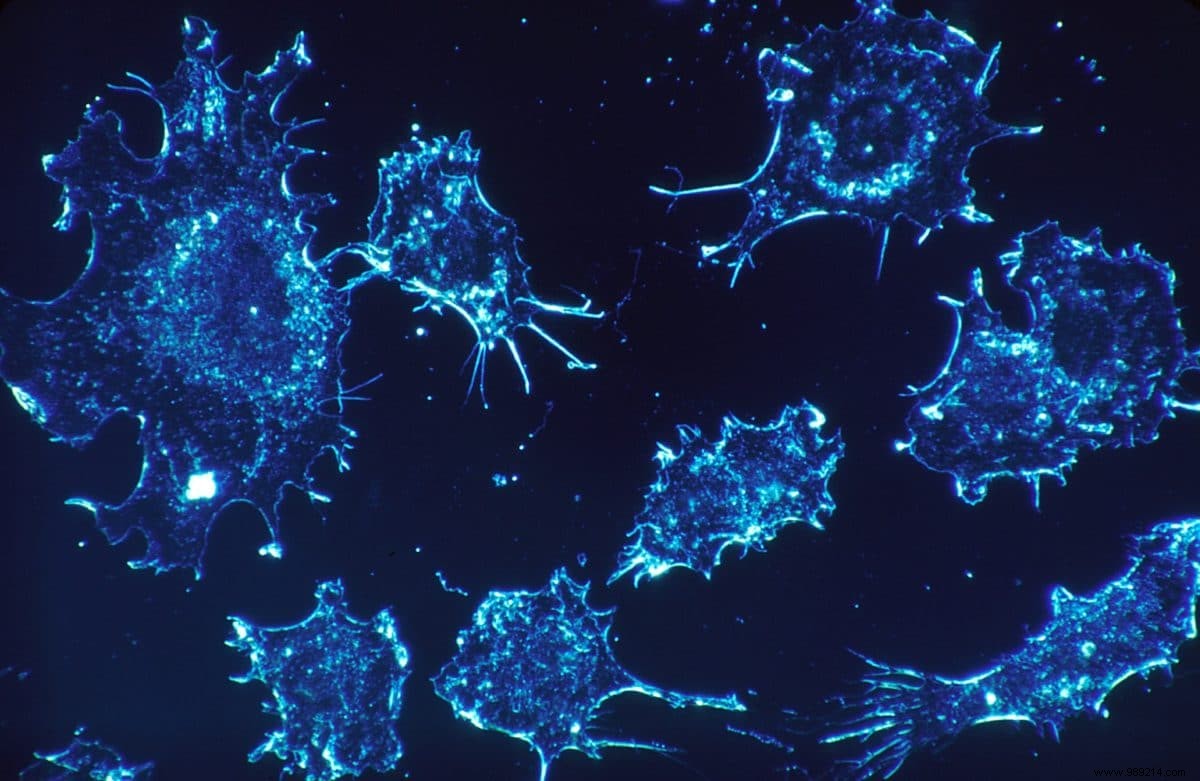Researchers analyzed more than 2,600 genomes from 38 different tumor types. This is a real breakthrough in the fight against cancer.
For a decade, more than a thousand researchers from 37 countries conducted the largest genetic cancer study ever. They then sequenced the genomes of more than 2,600 tumors corresponding to 38 types of cancer s. This very valuable data may eventually lead to more targeted and effective treatments . It will also be possible to detect the disease much earlier than before, thus improving the chances of survival of those concerned.
This work, carried out as part of the Pan-Cancer Project, was published this Wednesday in the form of around twenty articles in several medical journals.
Several important discoveries were made during this research. In particular, the researchers noted a wide variation in the number of genetic mutations (which cause the multiplication of cancer cells) involved in a particular cancer. They have observed very few in certain diseases observed in children, for example, to several tens of thousands for certain lung cancers.
Researchers have also recorded more than eighty processes capable of driving said mutations. Some are age-related while others are inherited or related to lifestyle factors such as alcohol consumption or smoking.
This study also revealed sometimes surprising similarities between different types of cancer. “We can have a type of breast and prostate cancer where the driver mutations are similar “, underlines for example Joachim Weischenfeldt, of the University of Copenhagen. “This means that the patient with prostate cancer could benefit from the same treatment that you would give her if she had breast cancer “.
Conversely, researchers have also sometimes noticed a great variety of genomes in cancerous tumors . In other words, two patients suffering from the same cancer can actually have very different genetic tumors.
Another important lesson:the first signs of cancer can appear years before diagnosis , even in childhood. “This means the window for early intervention is much wider than we thought “, explains Peter Campbell, of the Wellcome Sanger Institute.

In general, better understanding cancerous tumors from a genetic point of view can help us fight them better.
"Until now, the vast majority of work has focused on the protein coding portion of the genome “, explains Lincoln Stein, of the Ontario Institute for Cancer Research in Canada. "That's barely 1% of the information available. It's like trying to put together a 100,000 piece jigsaw puzzle when you are 99% missing and you don't have the box with the picture on it to guide you . This new knowledge may enable us to develop new tools to detect cancers earlier, as well as more targeted therapies to treat patients more effectively “.
Source
Related articles: